
The Majestic Haraz Mountains: Yemen's Hidden Gem
The Haraz Mountains, located in the western part of Yemen, offer a breathtaking escape into nature's untouched beauty. This mountain range is renowned for its dramatic landscapes, characterized by steep cliffs, lush valleys, and terraced fields. The region is a haven for hikers and adventure seekers, with numerous trails leading to stunning viewpoints and ancient villages perched atop the mountains. Visiting the Haraz Mountains is like stepping back in time. The area is dotted with fortified villages, some of which date back to the medieval period. These villages are built from stone and offer a glimpse into the traditional way of life that has been preserved for centuries. The most famous of these is Al-Hajjarah, known for its impressive stone architecture and panoramic views. In addition to the natural beauty and historical significance, the Haraz Mountains are also home to a rich cultural heritage. The local people are known for their hospitality and traditional Yemeni customs. Visitors can experience local cuisine, which includes dishes made from fresh, locally-sourced ingredients. The region is also famous for its coffee, considered some of the best in the world. A visit to the Haraz Mountains promises an unforgettable blend of adventure, history, and culture.
Local tips in Haraz Mountains
- Wear sturdy hiking boots, as the trails can be rocky and uneven.
- Carry enough water, especially if you plan on long hikes.
- Hire a local guide to navigate the trails and learn about the history and culture.
- Visit Al-Hajjarah for its architecture and views.
- Try the local coffee; it's some of the best in the world.
The Majestic Haraz Mountains: Yemen's Hidden Gem
The Haraz Mountains, located in the western part of Yemen, offer a breathtaking escape into nature's untouched beauty. This mountain range is renowned for its dramatic landscapes, characterized by steep cliffs, lush valleys, and terraced fields. The region is a haven for hikers and adventure seekers, with numerous trails leading to stunning viewpoints and ancient villages perched atop the mountains. Visiting the Haraz Mountains is like stepping back in time. The area is dotted with fortified villages, some of which date back to the medieval period. These villages are built from stone and offer a glimpse into the traditional way of life that has been preserved for centuries. The most famous of these is Al-Hajjarah, known for its impressive stone architecture and panoramic views. In addition to the natural beauty and historical significance, the Haraz Mountains are also home to a rich cultural heritage. The local people are known for their hospitality and traditional Yemeni customs. Visitors can experience local cuisine, which includes dishes made from fresh, locally-sourced ingredients. The region is also famous for its coffee, considered some of the best in the world. A visit to the Haraz Mountains promises an unforgettable blend of adventure, history, and culture.
When is the best time to go to Haraz Mountains?
Iconic landmarks you can’t miss
Dar AlHajar
Discover the majestic Dar AlHajar, a historical landmark in Yemen offering stunning views and rich cultural heritage nestled in Wadi Dhahr.
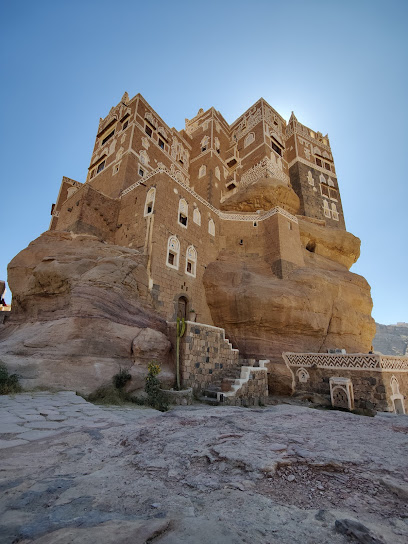
Bridge of Taiz St. Round
Explore the architectural beauty and vibrant atmosphere of the Bridge of Taiz St. Round in Sana'a, Yemen, where history and culture converge.
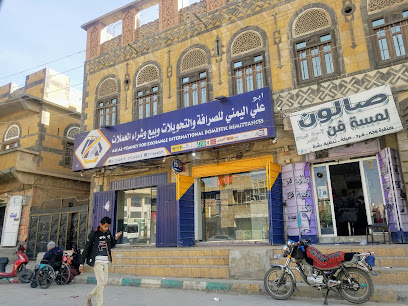
Haraz Wildlife Sanctuary.
Experience the breathtaking biodiversity of Haraz Wildlife Sanctuary, Yemen's premier wildlife refuge, where nature and adventure await.
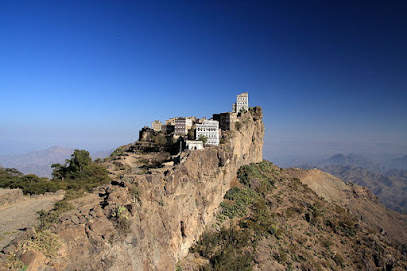
Excelled protected
Discover the breathtaking landscapes and rich biodiversity of Excelled Protected National Reserve in Yemen, a must-visit for nature lovers and adventure seekers.
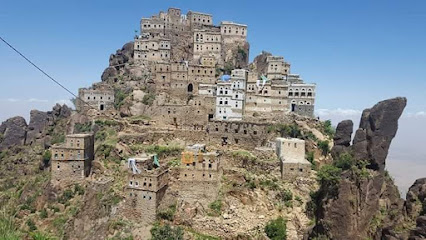
Jebel Benathi
Discover the breathtaking beauty and cultural heritage of Jebel Benathi, Yemen's stunning mountain peak offering adventure and serenity.
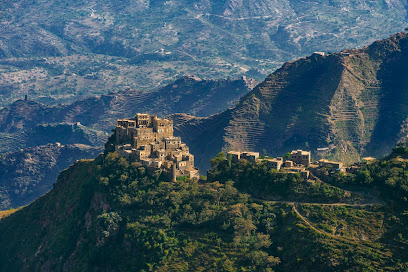
Jabal Bura
Discover the breathtaking beauty of Jabal Bura, Yemen's majestic mountain peak, where adventure meets stunning landscapes and rich cultural heritage.
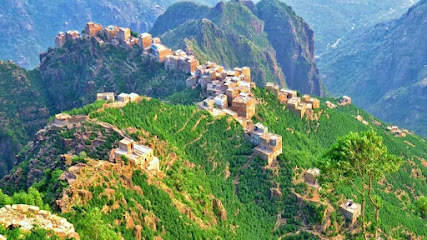
حطيب
Experience the warmth and hospitality of Hutayb at this charming apartment complex, your gateway to Yemeni culture and comfort.
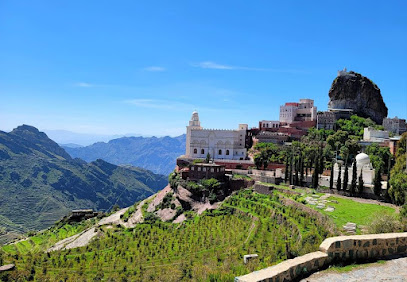
Sharquf Mountain Fort
Explore the historical Sharquf Mountain Fort, a stunning landmark offering panoramic views and a deep dive into Yemen's rich heritage.
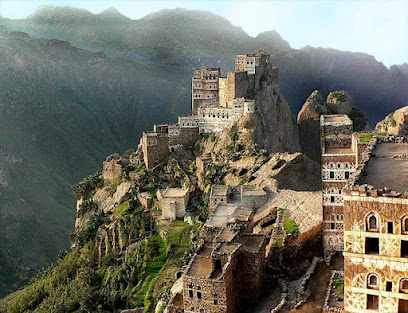
Dar Al-Hamd
Explore the enchanting Dar Al-Hamd in Sana'a, Yemen, where history and stunning architecture intertwine to create a unique cultural experience.
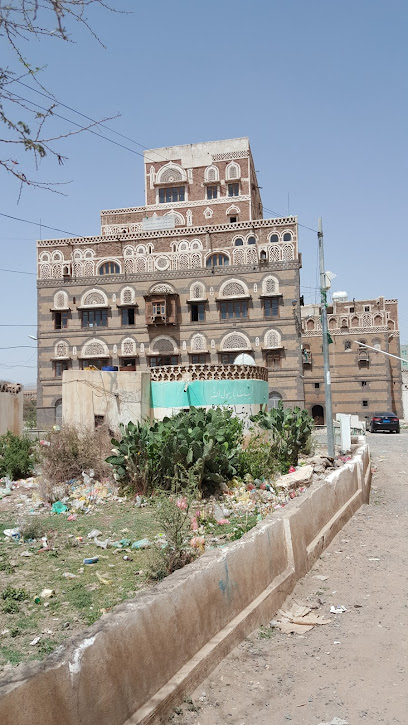
جبل الخراز
Explore Jabal Al-Kharaz, a historical landmark in 'Amran, Yemen, where stunning landscapes meet rich cultural heritage.

Unmissable attractions to see
Fun City
Experience the joy of adventure at Fun City, the premier amusement park in Sana'a, Yemen, offering fun and excitement for the whole family.
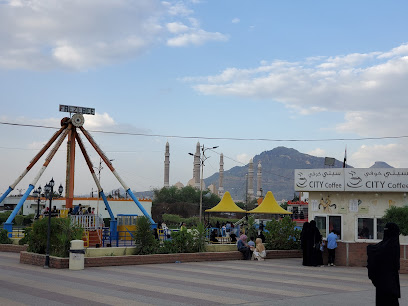
Amazon waterpark
Discover the Amazon Waterpark in Sana'a, Yemen – a thrilling water adventure with slides, pools, and family fun amidst a vibrant atmosphere.
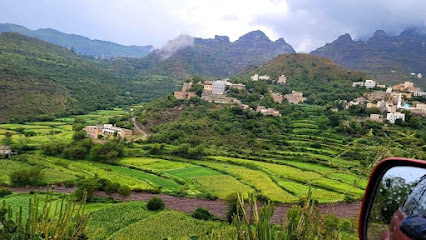
Ayhaft Canyon National Park
Experience the unique biodiversity and stunning landscapes of Ayhaft Canyon National Park in Socotra, Yemen, a UNESCO World Heritage Site.
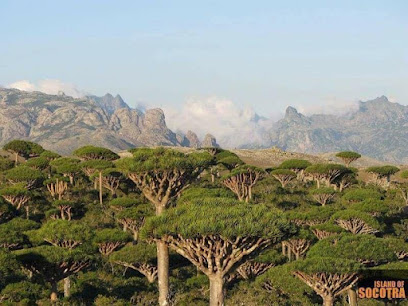
Sharquf Mountain Fort
Discover the captivating history and breathtaking views at Sharquf Mountain Fort, a must-see landmark in Yemen's stunning landscapes.
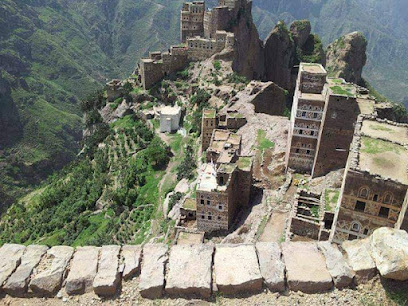
Essential places to dine
Remas Restaurants
Experience the rich flavors of Yemen at Remas Restaurant in Sana'a - where tradition meets taste in every dish.
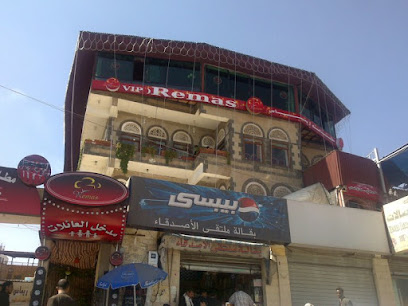
Mumbai Darbar Indian Restaurant
Experience authentic Indian cuisine at Mumbai Darbar in Sana'a - where every dish tells a story of tradition and flavor.
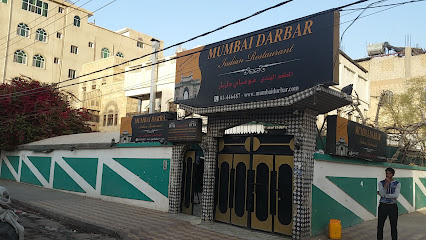
Al Taizzy Restaurant
Discover the rich flavors of Yemen at Al Taizzy Restaurant in Sana'a – a must-visit destination for food lovers seeking authentic cuisine.
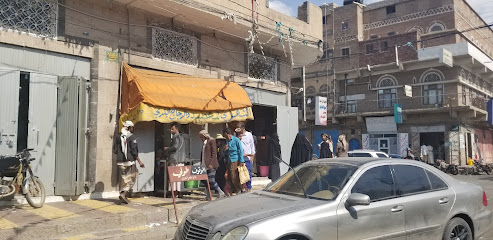
Al Qarmoushi Restaurant
Savor authentic Yemeni flavors at Al Qarmoushi Restaurant in Sana'a - where tradition meets taste.
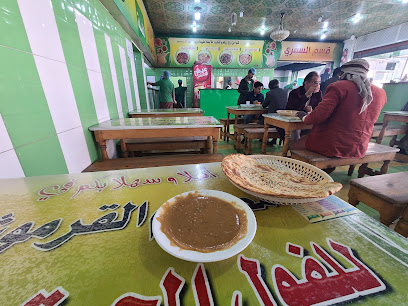
PavaRoti Resturant
Discover authentic Yemeni flavors at PavaRoti Restaurant in Sanaa – where every dish tells a story.
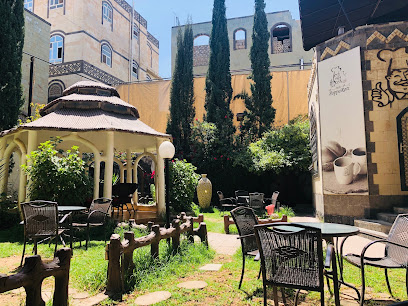
Shibam Hadramout Restaurant
Experience the essence of Yemeni cuisine at Shibam Hadramout Restaurant in Sana'a, where tradition meets flavor in every dish.
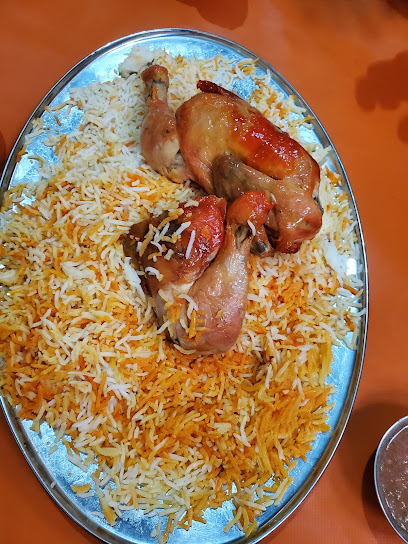
مطعم زهر الليمون
Experience authentic Yemeni cuisine at مطعم زهر الليمون in Sana'a - where tradition meets flavor.
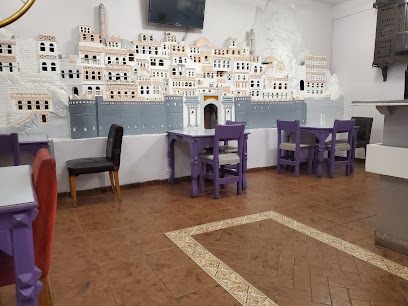
Taiz Restaurant مطعم تعز
Discover authentic Yemeni cuisine at Taiz Restaurant in Sana'a – where every meal tells a story.
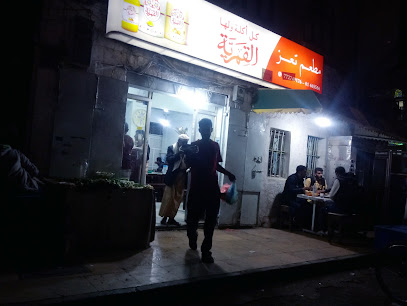
مطعم وفندق حميدة السياحي
Savor traditional Yemeni dishes in a cozy setting at Hamida Tourist Restaurant and Hotel in historic Shibam.
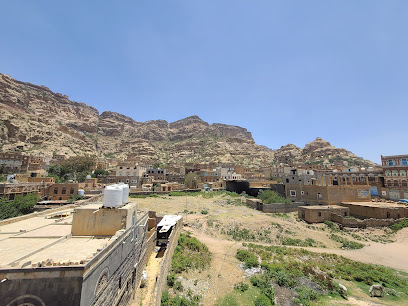
مطاعم شاورما هت Shawarma hut
Experience the authentic taste of shawarma at Shawarma Hut – a family-friendly takeout restaurant in Alharbi, Yemen offering delicious barbecue and pizza options.
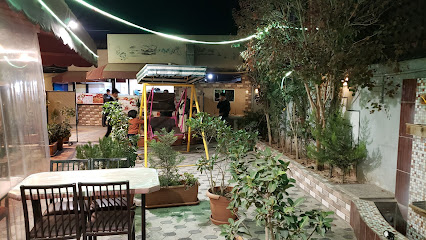
Tunis Restaurant
Discover authentic Yemeni flavors at Tunis Restaurant in Sana'a – a culinary journey awaits every traveler!
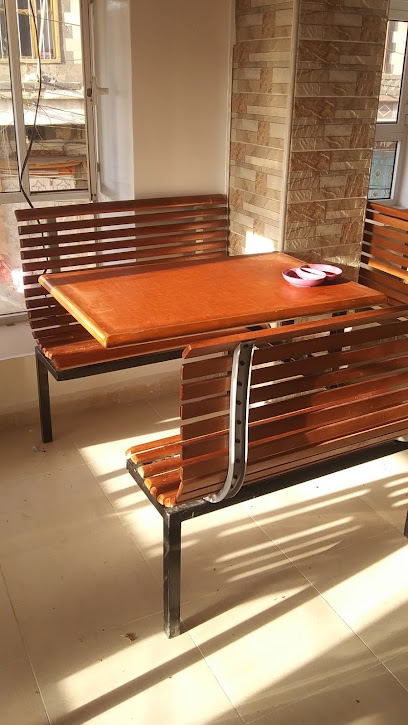
مطعم سميرة SAMEERA RESTAURANT
Experience authentic Ethiopian cuisine at Sameera Restaurant in Sana'a - where every dish tells a story.
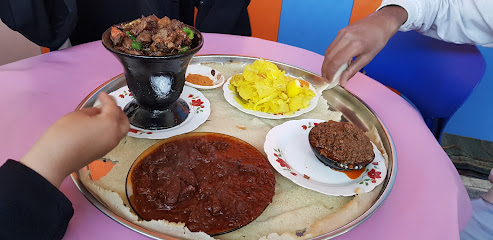
Restaurant and Mkhbazh Jabal Hiran
Discover authentic Yemeni flavors at Restaurant and Mkhbazh Jabal Hiran in Sana'a - a must-visit culinary destination for travelers.
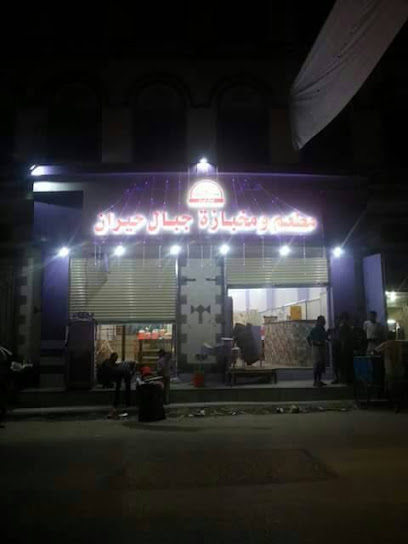
مطاعم وبروست ومخبازه ألبيت التهامي/Tohamy House Restaurants and Broast
Discover the authentic flavors of Yemen at Tohamy House Restaurants and Broast in Sana'a - where tradition meets taste.
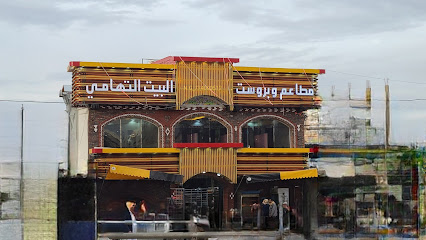
Twister YE
Experience delicious fast food at Twister YE in Sana'a – where local flavors meet international favorites!
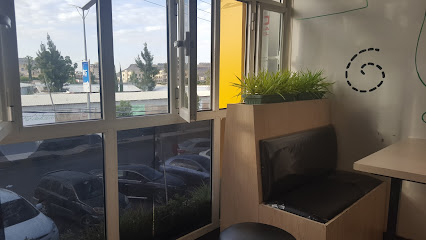
Markets, malls and hidden boutiques
Bani Mansour Market
Experience the essence of Yemen at Bani Mansour Market, a vibrant hub of culture, commerce, and local flavors in Ar Rihabi.
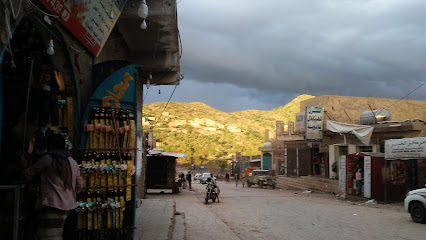
- حراز
Explore Hraz, a vibrant warehouse club in Manakhah, Yemen, offering diverse goods and delicious local cuisine in an authentic cultural atmosphere.
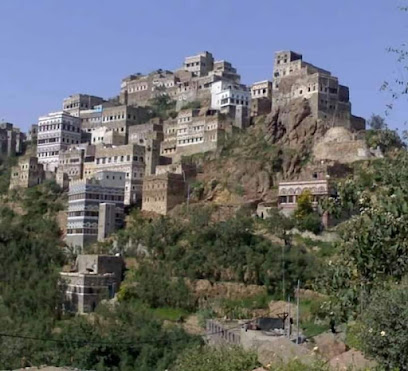
Jebel Benathi
Experience the breathtaking views and natural beauty of Jebel Benathi, a stunning mountain peak in Yemen, perfect for adventure seekers and nature lovers.
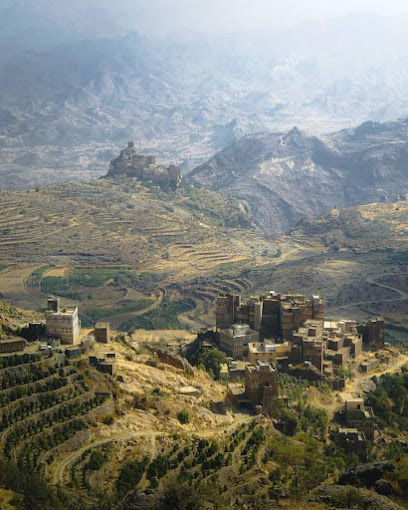
محلات السهيلي للتجاره والتسويق
Explore محلات السهيلي للتجاره والتسويق in Manakhah, Yemen - a vibrant shopping mall offering local crafts, delicious cuisine, and a taste of Yemeni culture.
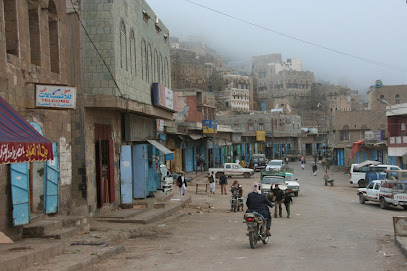
محلات صالح عبدالله الزهري لمواد البناء
Discover quality building materials at صالح عبدالله الزهري, a local favorite in Manakhah, Yemen, where tradition meets craftsmanship.

الحـــــــــداد مول
Explore الحـــــــــداد مول in Abal, Yemen, where local fashion meets modern trends in a vibrant shopping atmosphere.

دكان علي مسعود
Explore the local flavors of Al Jabal at دكان علي مسعود, a charming grocery store showcasing Yemen's rich culinary heritage.

بقاته امينو النهشلي
Discover local flavors and vibrant culture at بقاته امينو النهشلي, a charming grocery store in Manakhah, Yemen, perfect for an authentic experience.

ابن حمران لجميع انواع الادوات المنزليه
Discover the finest selection of home goods at Ibn Hamran, a top furniture store in Yemen, blending traditional craftsmanship with modern designs.

مركز الفخامة للاكترونيات
Explore the cutting-edge world of electronics at مركز الفخامة للاكترونيات in Al Maghareb, Yemen, where luxury meets technology.

محلات شبام
Discover unique Yemeni fashion at محلات شبام in Manakhah, where tradition meets contemporary style in a captivating shopping experience.
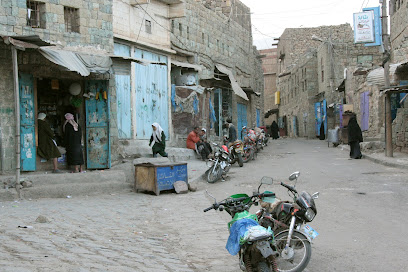
بن ماتع لتجارة
Discover unique clothing and accessories at بن ماتع لتجارة, a vibrant shopping destination in صعفان, Yemen, perfect for tourists seeking local fashion.
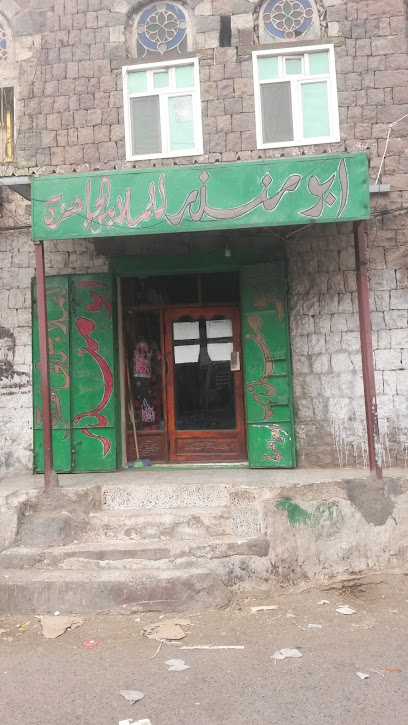
دكان ابو رشيد
Explore the heart of Yemeni cuisine at دكان ابو رشيد, where authentic ingredients and local flavors await.

محلات صالح حبيش واولادة للذهب والملابس والاحذية والمفروشات
Discover unique gold jewelry, clothing, and home decor at صالح حبيش واولادة in Manakhah, a true reflection of Yemeni craftsmanship.

بقاله انور مجلي
Explore authentic Yemeni flavors at بقاله انور مجلي, your go-to grocery store in مديرية صعفان for local produce and traditional goods.

Essential bars & hidden hideouts
مطاعم و استراحة مناخة
Savor the authentic flavors of Yemen at مطاعم و استراحة مناخة, where culinary traditions meet warm hospitality for an unforgettable dining experience.
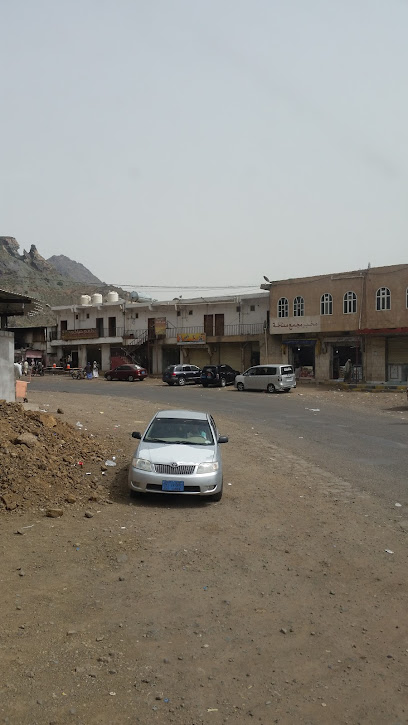
قاعة احتفالات
Discover the charm of الرجم at this inviting lounge, where every sip brings you closer to local culture and relaxation.

حوث
Discover Houth, a vibrant bar in Sana'a, Yemen, blending traditional ambiance with modern vibes for an unforgettable experience.
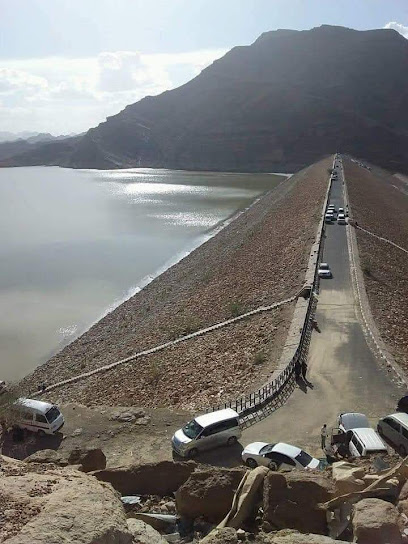
مركز غيث البحر لخدمه الاعراس 770465189
Discover the cultural charm and vibrant nightlife at مركز غيث البحر لخدمه الاعراس, a top bar experience in Sana'a, Yemen.

شلال البرحة
Explore Al-Bahr Waterfall in Mazhar, Yemen – a stunning natural gem perfect for relaxation, adventure, and unforgettable memories.
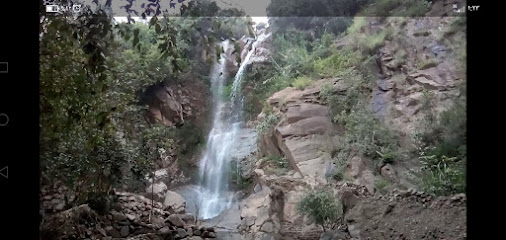
عصارة الطويلي الشارع العام
Discover the vibrant ambiance of عصارة الطويلي الشارع العام, a bar that offers a taste of authentic Yemeni culture and unforgettable social experiences.

عمران حاره الحاذق
Experience the vibrant local culture at عمران حاره الحاذق, a charming bar in 'Amran, Yemen, known for its delightful ice cream and inviting atmosphere.

زهرة البنفسج
Experience the warmth of Yemeni hospitality at زهرة البنفسج, a charming bar in Sana'a offering a taste of local flavors and relaxation.

هايل للزبيب ولوزوالمكسرات
Discover the flavors of Yemen at Hael for Raisins and Nuts, a cozy bar in Sana'a specializing in exquisite nuts and dried fruits.

قاعه الهجرة
Discover the serene ambiance of قاعه الهجرة, a cozy lounge in Al Hajjarah, perfect for relaxation and cultural immersion.
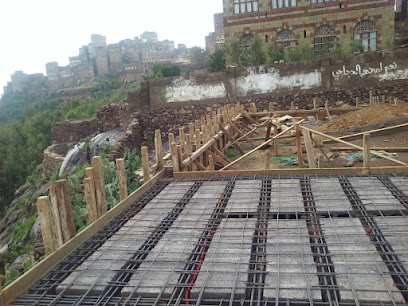
شرهان لأصل القات المطري
Experience the vibrant culture of Yemen at Sharhan, a lively pub in Sana'a known for its authentic cuisine and social atmosphere.

جبل الشرق
Experience the essence of Yemeni culture at جبل الشرق, a charming bar offering local drinks and warm hospitality in stunning natural surroundings.
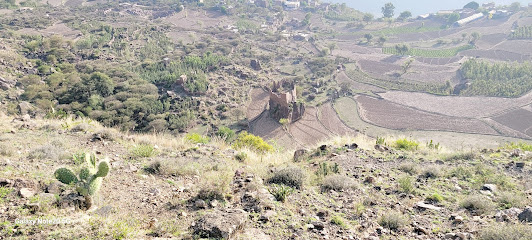
غيل اللغراب
Discover the vibrant local culture at غيل اللغراب, a lively bar in Altaweelah, Yemen, perfect for relaxing and socializing with locals.

فكري البوف للوجبات الطازجه
Experience the authentic flavors of Yemen at فكري البوف للوجبات الطازجه, a must-visit bar in Sana'a for fresh meals and local hospitality.
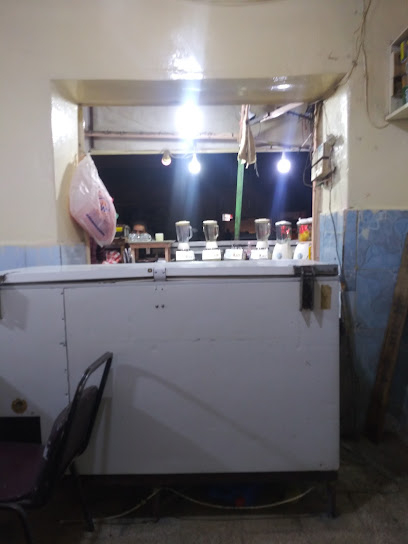
Local Phrases about Haraz Mountains
-
- Helloسلام
[salaam] - Goodbyeمع السلامة
[ma'a as-salama] - Yesنعم
[na'am] - Noلا
[laa] - Please/You're welcomeمن فضلك
[min fadlik] - Thank youشكراً
[shukran] - Excuse me/Sorryعذراً
['udhran] - How are you?كيف حالك؟
[kayf halak?] - Fine. And you?بخير. وأنت؟
[bikhayr. wa'ant?] - Do you speak English?هل تتحدث الإنجليزية؟
[hal tatahadath al-ingliziyya?] - I don't understandأنا لا أفهم
[ana la afham]
- Helloسلام
-
- I'd like to see the menu, pleaseأريد أن أرى القائمة، من فضلك
[uridu an ara al-qa'imah, min fadlik] - I don't eat meatأنا لا آكل اللحم
[ana la aakul al-lahm] - Cheers!في صحتك!
[fi sahtak!] - I would like to pay, pleaseأريد أن أدفع، من فضلك
[uridu an adfa', min fadlik]
- I'd like to see the menu, pleaseأريد أن أرى القائمة، من فضلك
-
- Help!النجدة!
[al-najdah!] - Go away!اذهب بعيدًا!
[idhab ba'eedan!] - Call the Police!اتصل بالشرطة!
[itassil bialshurta!] - Call a doctor!اتصل بطبيب!
[itassil bitalib!] - I'm lostأنا ضائع
[ana daa'i] - I'm illأنا مريض
[ana mareed]
- Help!النجدة!
-
- I'd like to buy...أريد أن أشتري...
[uridu an ashtari...] - I'm just lookingأنا فقط أتطلع
[ana faqat atatalla'] - How much is it?كم هو ثمنه؟
[kam huwa thamanuhu?] - That's too expensiveهذا غالي جدًا
[hatha ghali jiddan] - Can you lower the price?هل يمكنك خفض السعر؟
[hal yumkinuka khafd al-sa'r?]
- I'd like to buy...أريد أن أشتري...
-
- What time is it?كم الساعة؟
[kam al-saa'ah?] - It's one o'clockالساعة الواحدة
[al-saa'ah al-wahidah] - Half past (10)الساعة العاشرة والنصف
[al-saa'ah al-ashirah wan-nisf] - Morningالصباح
[al-subah] - Afternoonالعصر
[al-'asr] - Eveningالمساء
[al-masaa'] - Yesterdayالبارحة
[al-barahah] - Todayاليوم
[al-yawm] - Tomorrowغدًا
[ghadan] - 1واحد
[wahid] - 2اثنان
[ithnan] - 3ثلاثة
[thalatha] - 4أربعة
[arba'ah] - 5خمسة
[khamsah] - 6ستة
[sittah] - 7سبعة
[sab'ah] - 8ثمانية
[thamania] - 9تسعة
[tis'ah] - 10عشرة
[asharah]
- What time is it?كم الساعة؟
-
- Where's a/the...?أين...؟
[ayna...?] - What's the address?ما هو العنوان؟
[ma huwa al-anaan?] - Can you show me (on the map)?هل يمكنك أن تريني (على الخريطة)؟
[hal yumkinuka an tureeni (ala al-kharitah)?] - When's the next (bus)?متى الحافلة القادمة؟
[mata al-hafilah al-qadimah?] - A ticket (to ....)تذكرة (إلى ...)
[tadhkirah (ila ...)]
- Where's a/the...?أين...؟
History of Haraz Mountains
-
The Haraz Mountains have been inhabited since ancient times, with evidence of early human settlements dating back thousands of years. The rugged terrain provided natural fortifications, making it an ideal location for early communities. Archaeological findings suggest that the region was part of the Himyarite Kingdom, which flourished from the 1st century BCE to the 6th century CE.
-
During the Islamic Golden Age, the Haraz Mountains became a center for learning and culture. The region saw the construction of numerous mosques, madrassas, and libraries. One of the most notable sites is the city of Manakhah, which served as a hub for Islamic scholars and traders. The architecture from this period reflects a blend of Islamic and local styles, showcasing the region's rich cultural heritage.
-
In the 11th century, the Sulayhid Dynasty emerged as a dominant force in Yemen, with the Haraz Mountains serving as their stronghold. The Sulayhids were instrumental in spreading Ismaili Shia Islam in the region. They built impressive fortresses and palaces, many of which still stand today. Their rule marked a period of stability and prosperity, allowing for the flourishing of arts and architecture.
-
The Ottoman Empire extended its reach into Yemen in the 16th century, and the Haraz Mountains were no exception. The Ottomans left their mark on the region through the construction of fortifications and administrative buildings. They also introduced new agricultural techniques, which improved the productivity of the terraced fields that are still in use today. The Ottoman influence is evident in the architectural styles and cultural practices that persisted long after their rule.
-
In the 19th and early 20th centuries, the Haraz Mountains gained international fame for their coffee production. The region's unique microclimate and fertile soil made it ideal for growing high-quality coffee beans. Yemeni coffee from Haraz was highly sought after in global markets, and it played a significant role in the local economy. The traditional methods of coffee cultivation and processing are still practiced, preserving the heritage of Yemeni coffee.
-
In recognition of its historical and cultural significance, parts of the Haraz Mountains were designated as UNESCO World Heritage Sites in 2002. The designation highlights the region's unique landscape, traditional architecture, and historical monuments. Visitors to the area can explore ancient villages, terraced fields, and historical sites that offer a glimpse into the rich history of the Haraz Mountains.
Haraz Mountains Essentials
-
The Haraz Mountains are located in western Yemen, and the nearest major city is Sana'a. The primary entry point for international travelers is Sana'a International Airport. From Sana'a, you can hire a taxi or a private car to reach the Haraz Mountains, which is approximately a 2 to 3-hour drive. It's advisable to arrange transportation in advance as public transport options are limited and not very reliable.
-
Within the Haraz Mountains, the most common mode of transportation is by car. Renting a car with a driver is a practical option for exploring the area. Local taxis are available but may not be as reliable. Walking is also an excellent way to explore the villages and scenic landscapes, but be prepared for steep and rugged terrain. Public transportation is scarce, so do not rely on it for getting around.
-
The official currency in Yemen is the Yemeni Rial (YER). Cash is the most common form of payment, and it's essential to carry enough Yemeni Rials, especially when traveling to rural areas like the Haraz Mountains. Credit cards are rarely accepted, and ATMs are sparse, so ensure you withdraw sufficient cash in Sana'a before your journey.
-
The Haraz Mountains are generally safe for tourists, but it's crucial to stay informed about the current political situation in Yemen. Avoid isolated areas and always travel with a local guide. Certain regions may have higher risks due to tribal conflicts or political unrest, so check travel advisories before your trip. Petty crime is not common, but it's wise to keep your belongings secure and avoid displaying valuables.
-
In case of an emergency, contact the local authorities or your embassy in Sana'a. The emergency number in Yemen is 199 for police assistance. Medical facilities in the Haraz Mountains are limited, so for serious medical issues, you may need to travel back to Sana'a. It's highly recommended to have comprehensive travel insurance that includes coverage for medical evacuation. Make sure to carry a first-aid kit and any necessary medications.
-
Fashion: Do dress modestly, with long sleeves and pants or skirts; women should consider wearing a headscarf. Avoid wearing revealing clothing. Religion: Do respect local customs and traditions. Always remove your shoes before entering mosques and avoid taking photos inside unless permitted. Public Transport: Do use a private car or taxi; public transport is unreliable. Avoid traveling alone, especially at night. Greetings: Do greet people with a handshake, and use the right hand. Eating & Drinking: Do try local dishes, but avoid consuming food and drinks from street vendors to prevent foodborne illnesses. Do not refuse hospitality, as it is considered impolite.
-
To experience the Haraz Mountains like a local, visit the traditional villages such as Al-Hajjarah and Manakhah. Engage with the locals, who are known for their hospitality and may invite you into their homes for a meal. Try the local coffee, which is a significant part of Yemeni culture. Hiking is a popular activity, and local guides can show you the best trails and viewpoints. Don't miss the opportunity to explore the ancient terraces and agricultural landscapes that define the region.
Nearby Cities to Haraz Mountains
-
Things To Do in Dhamar
-
Things To Do in Ibb
-
Things To Do in Jizan
-
Things To Do in Najran
-
Things To Do in Aden
-
Things To Do in Obock
-
Things To Do in Khamis Mushait
-
Things To Do in Abha
-
Things To Do in Tadjoura
-
Things To Do in Djibouti City
-
Things To Do in Loyada
-
Things To Do in Arta
-
Things To Do in Ali Sabieh
-
Things To Do in Adi Keyh
-
Things To Do in Dikhil









